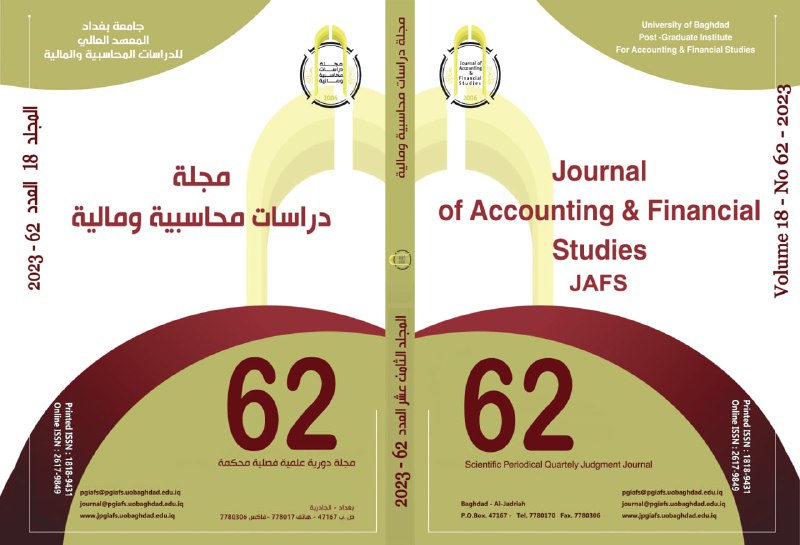أثر ضريبة الدخل التصاعدية في الإنفاق الاستهلاكي في العراق للمدة من 1995 إلى 2020
الكلمات المفتاحية:
ضريبة الدخل التصاعدية، الإنفاق الإستهلاكي الأسري، الإنفاق الإستهلاكي الحكوميالملخص
لجأ المشرع الضريبي إلى إجراء عدة تغييرات على الأسعار الضريبية لمواجهة الأعباء الحكومية المتزايدة وبما أن زيادة الضرائب تؤثر على دخل المكلفين لذا فأن البحث يهدف إلى إظهار أثر ضريبة الدخل التصاعدية في كل من الإنفاق الأسري والإنفاق الحكومي خلال مدة البحث من سنة 1995 إلى سنة 2020 , إذ تمثلت مشكلة البحث في محاولة الإجابة عن التساؤل الآتي : هل تؤثر الضرائب التصاعدية في معدلات الإنفاق الاستهلاكي الأسري والإنفاق الاستهلاكي الحكومي ؟ ولتحقيق هدف البحث فقد تم اختيار
أسلوب إستقرائي تحليلي لقياس أثر ضريبة الدخل التصاعدية في الإنفاق الاستهلاكي (الأسري والحكومي) كمياً بإستخدام البيانات المالية التي تم الحصول عليها من الهيئة العامة للضرائب ووزارة التخطيط . وقد توصلت الباحثة الى مجموعة من الاستنتاجات أهمها: ان لضريبة الدخل المفروضة تأثير معنوي إيجابي حيث كلما ارتفعت الحصيلة الضريبية كان يقابلها إرتفاع في الإستهلاك الأسري وهذا يعني عدم فعالية أسلوب زيادة الأسعار الضريبية ومضاعفة الشرائح الضريبية بغرض تقليل الإستهلاك حيث أن النزعة الاستهلاكية للمكلف كانت ثابتة تقريباً أو تتأثر بعوامل اخرى مثل الثروة وإرتفاع الأسعار وتقليد الاخرين وتأثرهم بالبيئة المحيطة بهم ومحاكاتهم لمستويات المعيشة السائدة في الدول المتقدمة وعدم الميل إلى الإدخار ووجود التزامات مالية أخرى للأفراد.
التنزيلات
منشور
إصدار
القسم
الرخصة
يتمّ نقلُ حقوق النّشر إلى المجلّة عند إخطار الباحث بقَبول بحثه المقدّم للنّشر في المجلّة.





